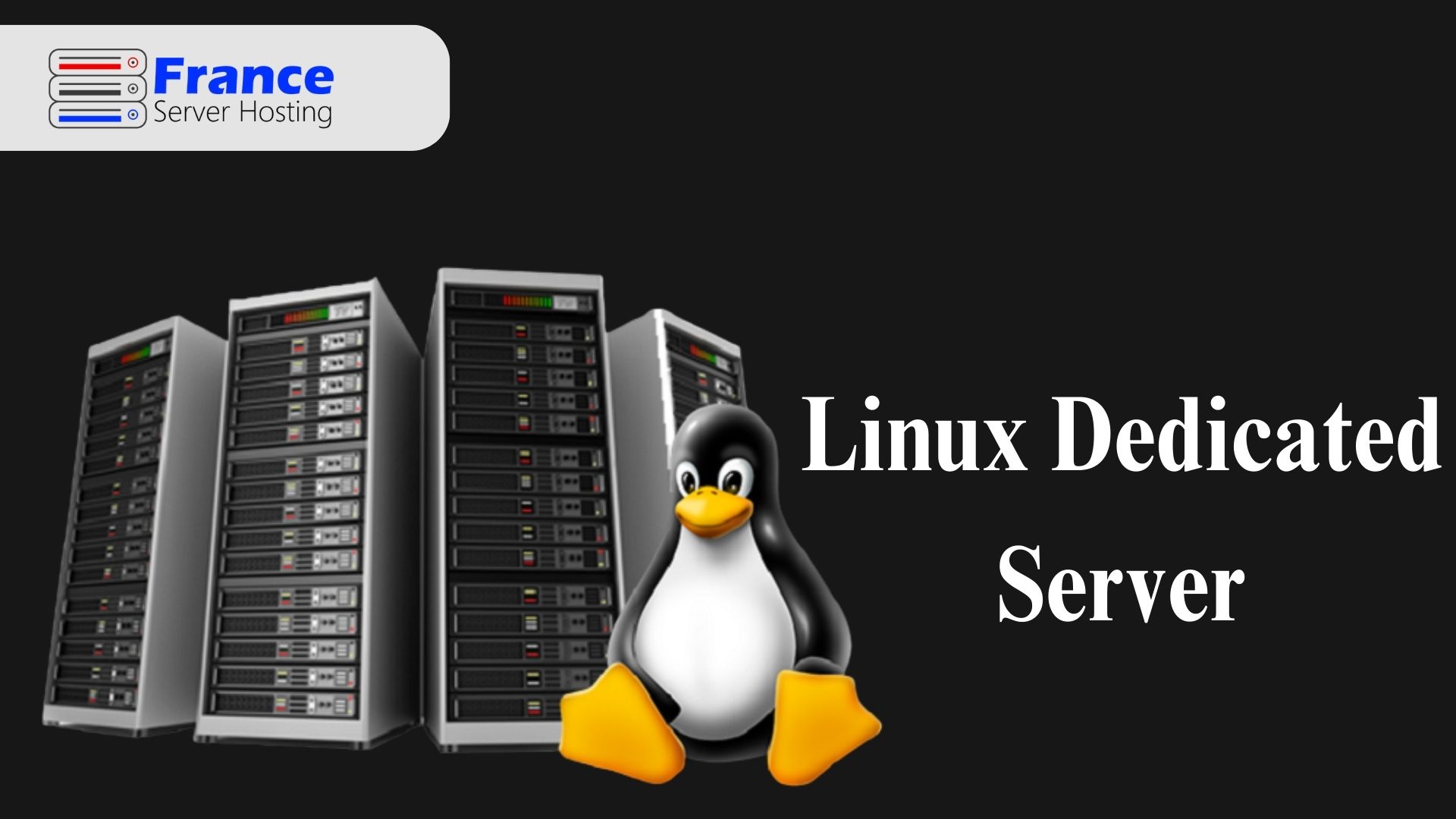Where businesses rely heavily on online presence, the choice of hosting plays a pivotal role. Linux dedicated server have emerged as a formidable solution for organizations seeking high performance, security. And customization in their hosting environment. This comprehensive guide delves into the world of Linux dedicated server. Exploring By France Server Hosting their benefits, setup process, management. Security considerations, and future trends.
Understanding Dedicated Server
- What is a Dedicated Server? An introduction to dedicated server and how they differ from shared and virtual private server. Emphasis on exclusive resources and full control.
- Advantages of Dedicated Server: Discussing the key benefits such as enhanced performance, resource isolation, customization, and scalability.
- Use Cases for Best Dedicated Server: Exploring industries and scenarios where dedicated server shine. Including high-traffic websites, e-commerce platforms, gaming server, and more.
Managing a Linux Dedicated Server
- Command Line Basics: Introduction to essential command-line operations for server management, including file navigation, file manipulation, and process management.
- Web Hosting Control Panels: Exploring web-based control panels like cPanel, Plesk, and Webmin for simplifying server management tasks At France Server Hosting , user administration, and website deployment.
- Automation with Bash Scripting: How to streamline tasks and configurations using Bash scripting. Examples of creating automated backup routines, software installations, and more.
- Containerization and Virtualization: An overview of Docker and virtualization technologies like KVM and Virtual Box for creating isolated environments and optimizing resource utilization.
Ensuring Security and Stability
- Firewall and Network Security: Guide to implementing a robust firewall. Managing network ports, and securing server connections to prevent unauthorized access.
- Regular Updates and Patch Management: Importance of timely updates to ensure server stability and security. Tips for setting up automated updates and handling manual updates.
- Hardening Server Security: In-depth exploration of server hardening techniques, including user privilege management, disabling unnecessary services, and securing SSH access.
- Backup and Disaster Recovery: Strategies for creating reliable backup systems and disaster recovery plans to safeguard data against hardware failures and data corruption.
Future Trends in Best Dedicated Server
- Container Orchestration: Insight into Cabernets and other container orchestration platforms for efficient management and scaling of containerized applications.
- Edge Computing: Discussion on the rise of edge computing and how Linux dedicated server are well-positioned to support distributed applications closer to users.
- Security Innovations: Exploration of upcoming security trends such as zero-trust architecture, AI-driven threat detection, and encryption advancements.
Optimizing Performance on Cheap Dedicated Server
- Monitoring and Resource Management: Introduction to monitoring tools like Nagios, Zabbix, and Prometheus for tracking server performance, resource utilization. And identifying bottlenecks.
- Tuning Kernel Parameters: Deep dive into optimizing Linux kernel parameters to enhance server performance for specific workloads. Such as web hosting, database management, and more.
- Caching and Content Delivery: Exploring caching techniques like Varnish, Memcached, and CDNs for accelerating content delivery and reducing server load. Resulting in improved user experiences.
- Database Optimization: Tips for fine-tuning database systems (e.g., MySQL, PostgreSQL) to maximize query efficiency, reduce query execution times. And enhance overall database performance.
Scaling and Load Balancing
- Load Balancing Concepts: Explanation of load balancing mechanisms and their importance in distributing incoming traffic across multiple server instances to ensure high availability.
- Setting Up Load Balancers: A step-by-step guide to configuring load balancers like HAProxy and Nginx for distributing incoming requests and handling server failures gracefully.
- Horizontal Scaling: Exploration of horizontal scaling strategies using tools like Kubernetes and Docker Swarm to dynamically manage and scale application instances based on demand.
Networking and Connectivity
- IPv6 Adoption: Explanation of IPv6 and its importance in the context of dwindling IPv4 address availability, along with practical steps for enabling IPv6 on your dedicated server.
- Virtual Private Networks (VPNs): Introduction to setting up VPNs on Linux dedicated server for secure remote access, data encryption, and maintaining privacy over public networks.
- Software-Defined Networking (SDN):Exploration of SDN concepts and how they can be leveraged to dynamically manage network configurations, improve performance, and enhance security.
Green Hosting and Energy Efficiency
- Environmental Impact of Data Center: Discussion on the energy consumption of data centers and the importance of adopting energy-efficient practices in hosting environments.
- Eco-Friendly Server Hardware: Exploration of energy-efficient server hardware options and technologies that help reduce power consumption while maintaining optimal performance.
- Server Virtualization and Consolidation: How server virtualization can contribute to energy savings by consolidating multiple virtual server onto a single physical machine, leading to reduced resource consumption.
Supporting Different Workloads
- Web Hosting and Content Management Systems: Tailoring your Linux dedicated server environment to host website and CMS platforms effectively, with considerations for performance, security, and scalability.
- Gaming Server Hosting: Insights into hosting game server on Linux dedicated server, including popular games and tips for optimizing performance. Minimizing latency, and managing resources.
- Big Data and Analytics: Exploring how best dedicated server can support big data processing and analytics workloads using tools like Hadoop. Spark, and Elasticsearch.
Conclusion
Windows dedicated server offer a world of possibilities for businesses seeking unparalleled performance, security, and customization. This guide has equipped you with the knowledge needed to make informed decisions, from selecting the right hardware and distribution to managing and securing your server effectively. As technology continues to evolve, Linux dedicated server will remain at the forefront of innovation. Empowering organizations to achieve their digital ambitions.

